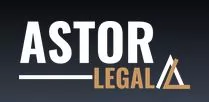New affirmative consent laws in relation to sexual assault cases have been introduced in NSW.
The amendments to the legislation were revealed by Attorney-General Mark Speakman as 'common sense'.
The reforms to sexual assault consent laws go even further than what was proposed by the Law Reform Commission.
What is consent?
Consent is when a person freely and voluntarily agrees to engage in sexual activity.
The new legislation creates objectives which include that consent to sexual activity is not to be presumed. Ongoing and mutual communication and decision-making is also expected between participants.
Sexual activity means sexual intercourse, sexual touching or a sexual act.
There are however some circumstances where you can't consent including when you're heavily affected by drugs or alcohol, so if you're heavily intoxicated you can't consent.
You can't consent if you're unconscious, asleep, or if you've been manipulated or threatened.
New Affirmative Consent Laws
The legislation introduces affirmative consent by imposing strict requirements on participants pursuant to Section 61HE of the Crimes Act 1900.
A person is presumed know that consent does not exist if they do not say or do anything to find out whether the other person consents to the sexual activity within a reasonable time before or at the time of the sexual activity.
There is no guidance as to what a 'reasonable time' is. This effectively means that a person should obtain consent for each different type of sexual activity, even if the other party has consented to that type of activity earlier in the interaction.
The new sexual consent laws allow a person to withdraw consent at any time by their words or conduct.
Further, a person who consents to one type of sexual activity is not presumed to consent to another type of sexual activity.
Types of Relationships Affected
If a person participates in sexual activity because they are overborne by the abuse of a relationship of authority, trust or dependence then there is no consent.
This is particularly relevant to workplace relationships where one party may be in a position of authority.
It will also be an issue if the parties have a 'student/teacher' relationship, even if both parties are over the age of 18.
Consent is also void if it is obtained by a fraudulent inducement. The only exceptions to this are if a person lies about their income, wealth or feelings. Under the new laws, any other misrepresentation by a person could vitiate consent.
How it Will Affect Criminal Prosecutions?
According to NSW Attorney General Mark Speakman, the reforms are designed to make prosecutions of sexual offences "fairer and more effective".
However, criminal lawyers in Sydney have argued that the reforms appear solely focussed on making it easier for prosecutors to obtain convictions.
None of the reforms have addressed troubling aspects of sexual assault laws which curtail the rights of an accused.
This was recently borne out in the decision of Jackmain v R [2020] NSWCCA 150. The defendant was an Aboriginal man facing one count of assault occasioning actual bodily harm and three counts of sexual intercourse without consent.
The complainant in that case had made false allegations of sexual assault on 12 prior occasions.
At trial, the prosecution objected to evidence of those false allegations being put before the jury because they related to the sexual experience (or a lack of sexual experience) of the complainant.
The trial judge found that the false allegations were plainly relevant to the proceedings and the accused would be prejudiced by their exclusion. However, he found that he was bound to exclude them as they related to the complainant's sexual experience (or lack thereof) pursuant to Section 293 of the Criminal Procedure Act 1986.
Notably, all jurisdictions apart from NSW have an 'interests of justice' exception to this rule. Such an exception would allow the admission of prior false sexual assault allegations into evidence.
Despite the far-reaching reforms, this aspect of the current sexual assault laws was not addressed.
New Directions for Jurors
By contrast, a number of new directions for jurors have been introduced to better understand the "complexities" of sexual offending and "dispel rape myths," according to Mr Speakman.
"For example a victim who isn't showing any physical signs of harm doesn't mean they haven't been raped, the fact there hasn't been a complaint straight away doesn't mean there hasn't been a sexual assault."
The Attorney-General went on to state, "This will hopefully improve the outcomes for women's safety because there are clearer rules of engagement...It will reduce the grey areas that we have seen for too long in NSW."
What is the age of consent?
The age of consent in NSW is 16.
Any person under the age of 16 is incapable of providing informed consent.
How do you ask for consent?
The NSW government's Make No Doubt consent campaign recommends asking for consent directly. It has been targeted towards 16-24 year olds.
Some of the suggested questions are: "Is this okay?", "Can I kiss you?", "Do you want to try ___?", "Want me to keep going?".
Under the new legislation, checking for consent throughout the sexual activity is also important because if a person consents to one thing doesn't mean they consent to another.
"Keep checking in to make sure they're comfortable. If they change their mind, stop and respect their decision," the Make No Doubt campaign said.

